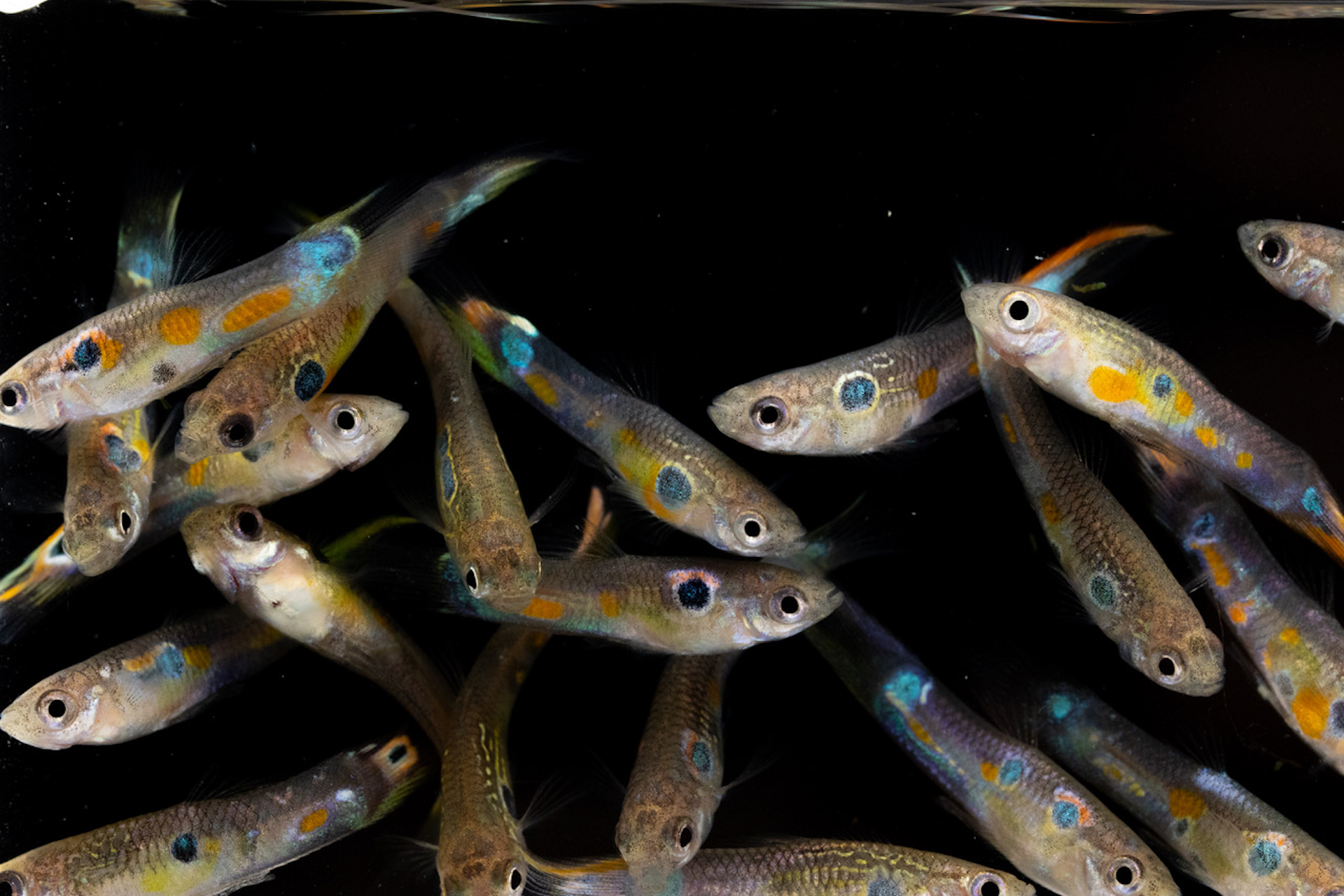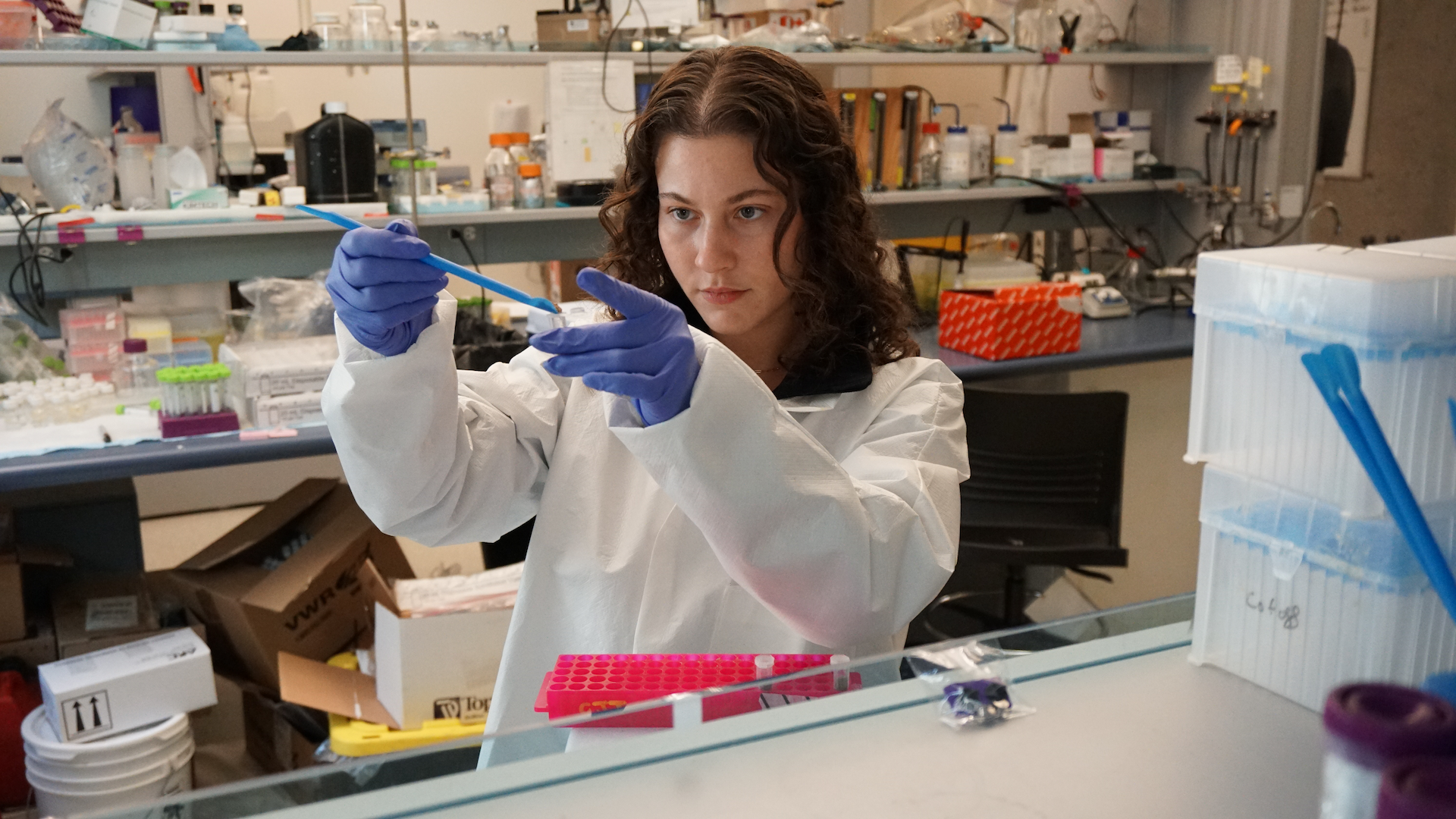Animal Research
-

Salmon virus originally from the Atlantic, spread to B.C. wild salmon from farms: Study
Piscine orthoreovirus (PRV) – which is associated with kidney and liver damage in Chinook salmon – is continually being transmitted between open-net salmon farms and wild juvenile Chinook salmon in British Columbia waters, according to a new genomics analysis published today in Science Advances.
-
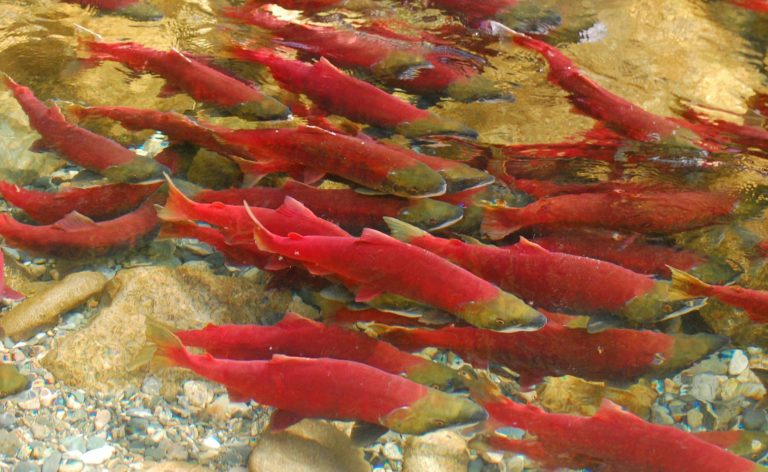
Female salmon are dying at higher rates than male salmon
Female adult sockeye from the Fraser River are dying at significantly higher rates than their male counterparts on the journey back to their spawning grounds, finds new UBC research.
-

UBC releases 2019 animal research statistics
UBC’s summary of animals involved in research at the university in 2019 is now available.
-
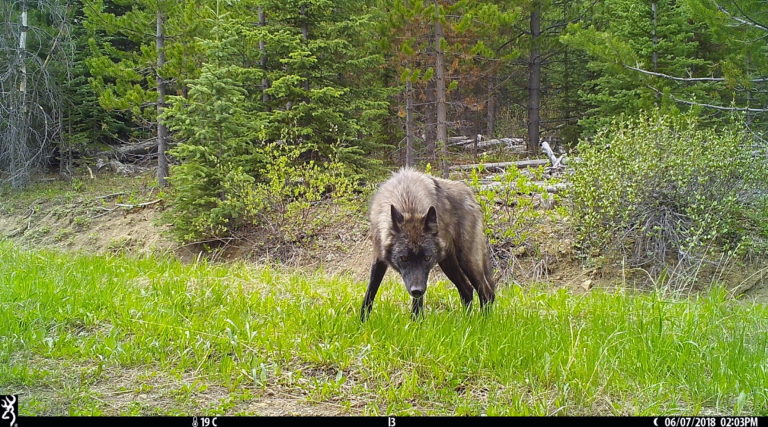
Camera traps show impact of recreational activity on wildlife
The COVID-19 pandemic has fired up interest in outdoor activities in our parks and forests. Now a new UBC study highlights the need to be mindful of how these activities may affect wildlife living in protected areas.
-
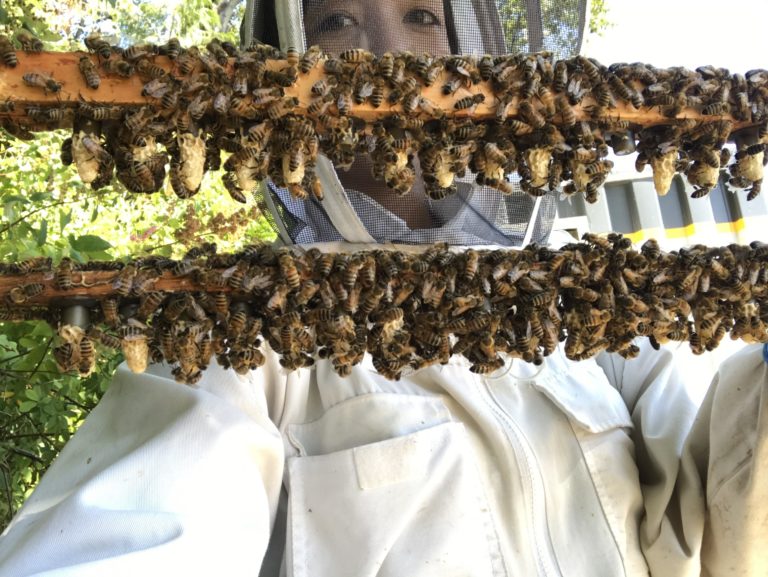
Long live the queen: UBC scientists find clues to queen bee failure
Scientists at UBC are unravelling the mysteries behind a persistent problem in commercial beekeeping that is one of the leading causes of colony mortality—queen bee failure.
-
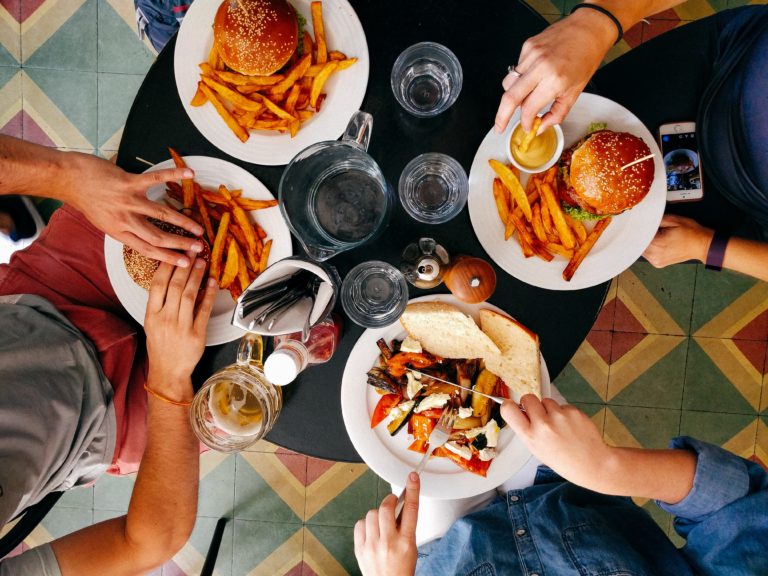
UBC scientist identifies a gene that controls thinness
Why can some people eat as much as they want, and still stay thin?
-
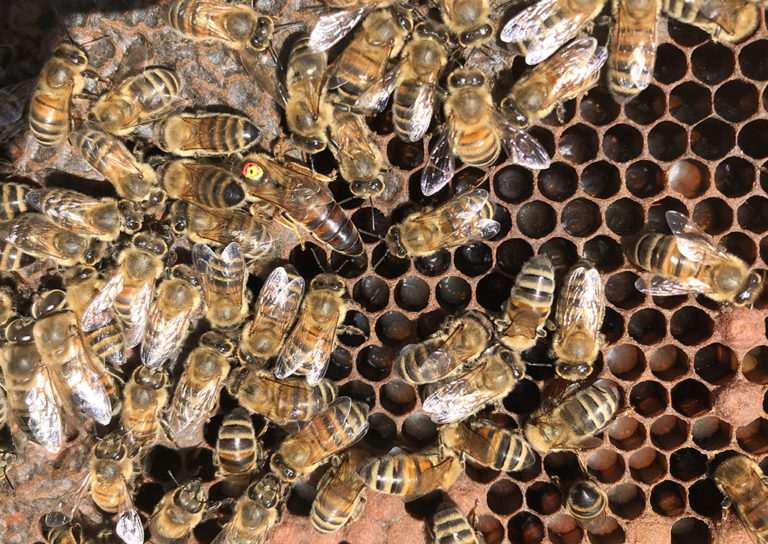
Honey bees could help monitor fertility loss in insects due to climate change
New research from the University of British Columbia and North Carolina State University could help scientists track how climate change is impacting the birds and the bees… of honey bees.
-
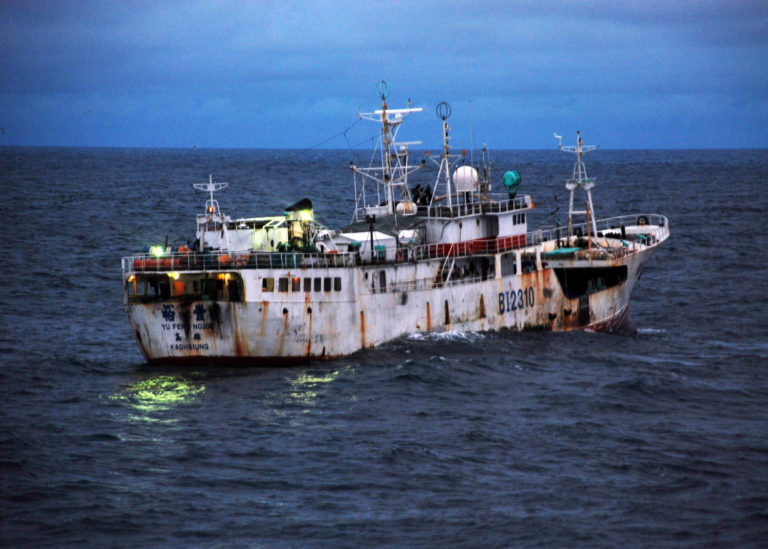
Billions lost as illicit fisheries trade hurting nations who can afford it least
More than eight million to 14 million tonnes of unreported fish catches are traded illicitly every year, costing the legitimate market between $9 billion and $17 billion in trade each year, according to new UBC research.
-
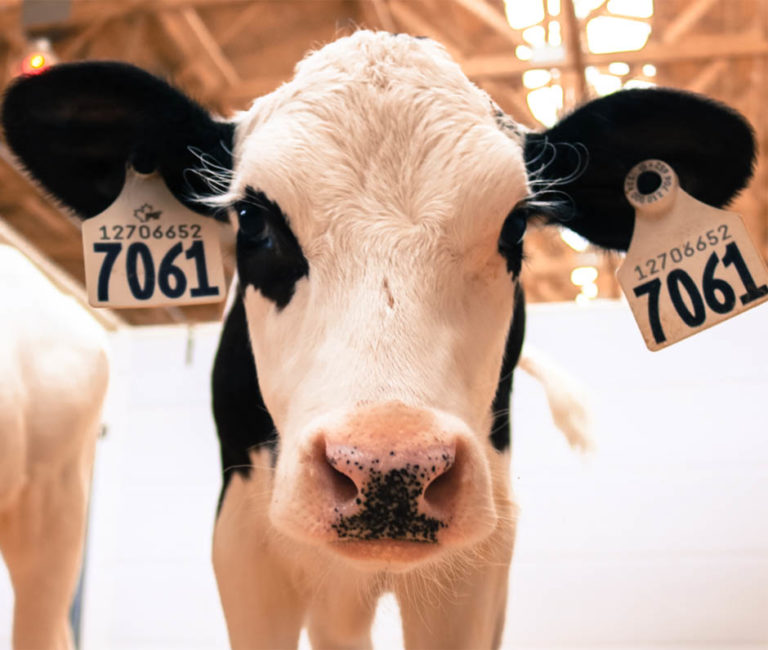
Got a moody teenager? Cows can relate
Dairy cattle undergo personality changes during puberty much like humans do, according to new UBC research published this week in the Royal Society Open Science.
